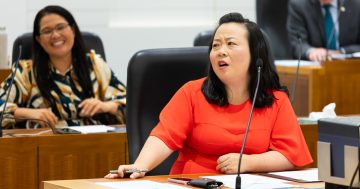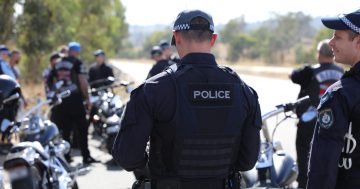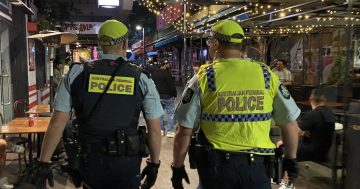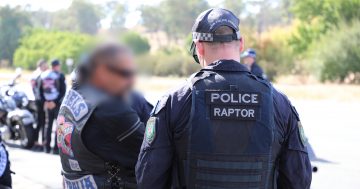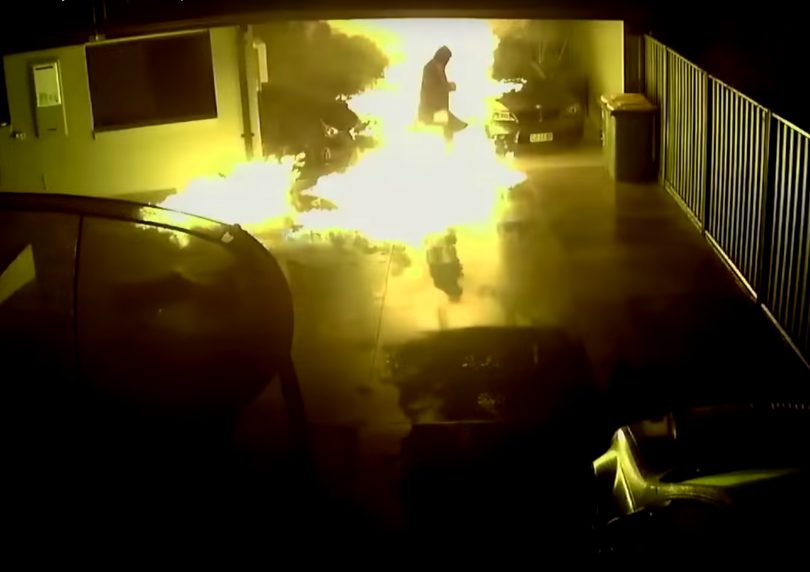
CCTV footage shows a bikie shooting and arson attack at a Calwell home earlier this year. Photo: File.
If we held the republic referendum again among the RiotACT readers who responded to our weekly poll, it looks like there would be a clear majority for ending the monarchy’s constitutional role in Australian affairs.
Hot on the heels of the release of the Palace Letters (and revelations that Sir John Kerr did not tell the Queen about his decision to remove Prime Minister Gough Whitlam), we asked you: should the Queen have final authority over our national affairs?
A total of 697 readers cast their votes. Your options were to vote Yes, she provides valuable stability and continuity. This received 24 per cent of the total, or 170 votes. Alternatively, you could vote No, we should be responsible for ourselves. This received a whopping 76 per cent of the total, or 527 votes.
This week, we’re wondering about a very serious matter as violence rears its head in the Territory. In the early hours of Sunday morning, the ACT’s Comancheros chief was allegedly stabbed in Kokomo’s restaurant and died on the pavement outside in front of shocked onlookers. His death came with reports of rolling fights in the central city precinct. Restaurant staff and onlookers are being counselled after witnessing the horrific events.
No arrests have yet been made, but ACT Policing has made it clear that outlaw motorcycle gang issues will form a prominent part of their investigations.
For some years there have been calls for anti-consorting laws in the ACT to combat the perceived threat from motorcycle gangs, and the ACT Opposition has been quick to call for renewed action on the issue.
It’s a move the ACT Government has long resisted, arguing that although criminal activity and motorcycle gangs are always a problem in any community, the reality is that the gangs are relatively small in size and responsible for little of the Territory’s crime.
A report released earlier this year by Attorney-General Gordon Ramsay found only 1 per cent of crime in the Territory was committed by gang members.
The independent review of the effectiveness of ACT Policing crime scene powers and powers to target, disrupt, investigate and prosecute criminal gang members in the Legislative Assembly, written by Professor Terry Goldsworthy from Bond University, also found that anti-association and consorting laws were ineffective and could have unintended consequences.
It’s believed that the number of gang members in the ACT has not increased in the last five years, according to the available data, and is believed to total no more than about 30 members in total. The Comancheros, Nomads and Satudarah are represented in the ACT, as are the Rebels.
But the Liberals say that anti-gang laws have been backed by multiple frontline experts on crime prevention and by the High Court.
According to Shadow Attorney-General Jeremy Hanson: “The fact is that since the ACT government failed to introduce anti-consorting laws more than a decade ago, we have seen a four-fold increase in bikie gangs and, as a result, a bikie war has unfolded across Canberra.”
Our question this week is:












